India’s astronaut will conduct exclusive food and nutrition-related experiments onboard the International Space Station (ISS) as part of the upcoming Axiom Mission 4
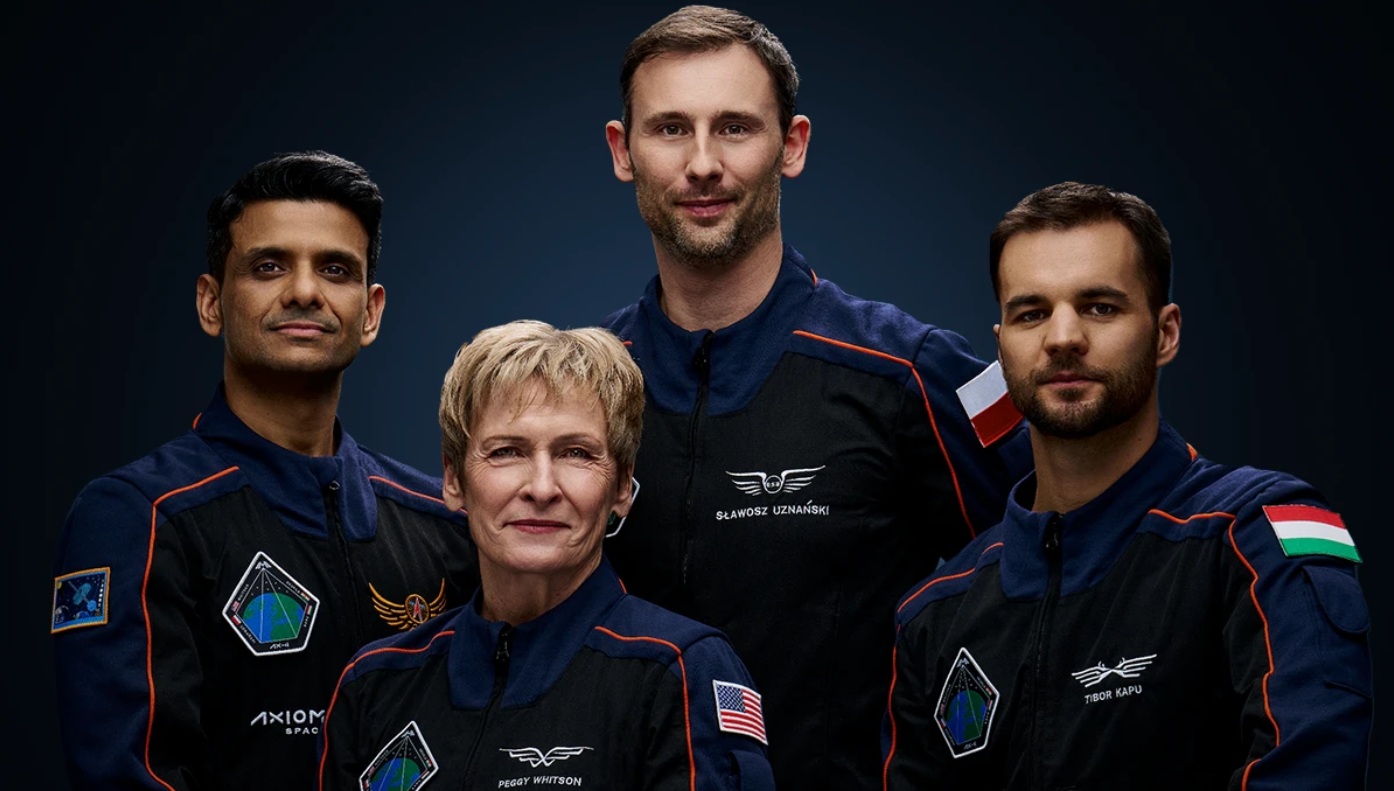
FinTech BizNews Service
Mumbai, June 1, 2025: Union Minister for Department of Space, Dr. Jitendra Singh has announced during a media briefing that Group Captain Shubhanshu Shukla, one of India’s astronauts, will conduct exclusive food and nutrition-related experiments onboard the International Space Station (ISS) as part of the upcoming Axiom Mission 4 (Ax-4).
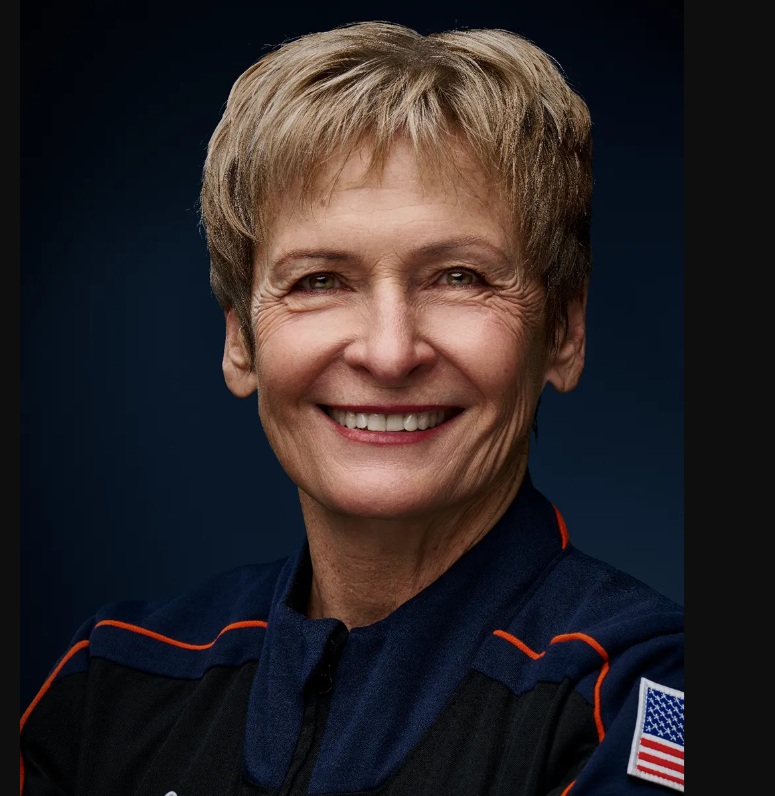 Peggy Whitson, Commander
Peggy Whitson, Commander
The experiments—developed under a collaboration between the Indian Space Research Organisation (ISRO) and the Department of Biotechnology (DBT), with support from NASA—aim to pioneer space nutrition and self-sustaining life support systems vital for future long-duration space travel.
Union Minister of State (Independent Charge) for Science and Technology; Minister of State (Independent Charge) for Earth Sciences; Minister of State in the Prime Minister’s Office, Department of Atomic Energy, Department of Space; and Minister of State for Personnel, Public Grievances, and Pensions, Dr. Jitendra Singh, detailed that the first ISS experiment will examine the impact of microgravity and space radiation on edible microalgae—a high-potential, nutrient-rich food source. The study will focus on key growth parameters and the changes in transcriptomes, proteomes, and metabolomes of various algal species in space compared to Earth conditions.
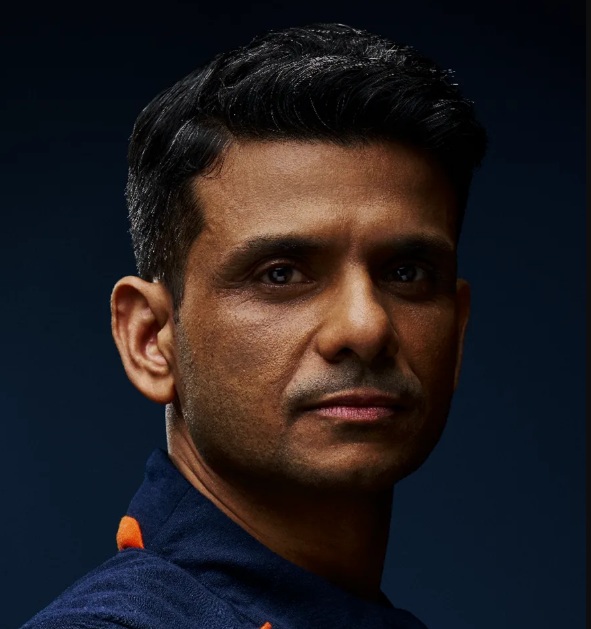
The Ax-4 mission will “realize the return” to human spaceflight for India, Poland, and Hungary, with each nation’s first government-sponsored flight in more than 40 years. While Ax-4 marks these countries' second human spaceflight mission in history, it will be the first time all three nations will execute a mission on board the International Space Station. This historic mission underscores how Axiom Space is redefining the pathway to low-Earth orbit and elevating national space programs globally.
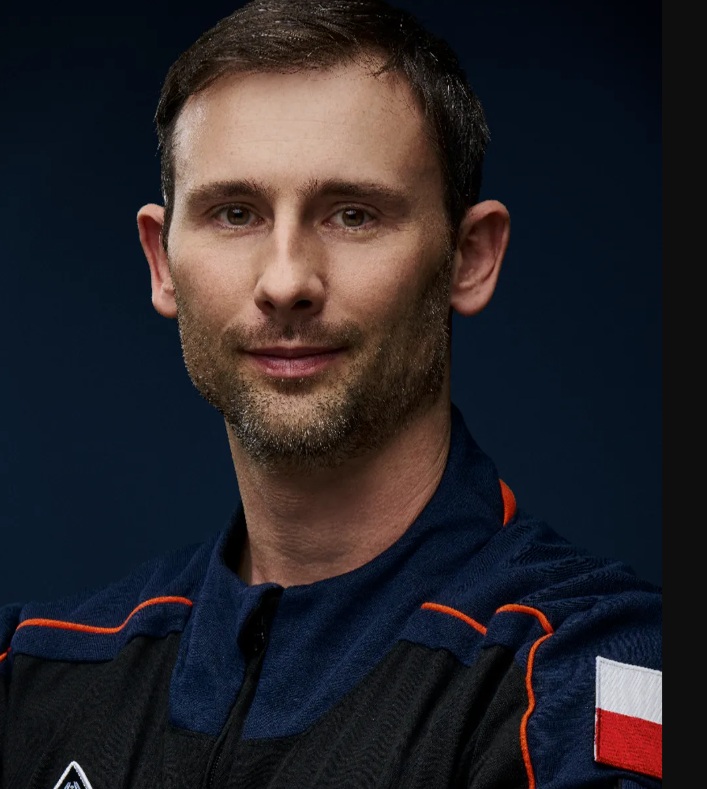
Sławosz Uznański-Wiśniewski, Mission Specialist
Presenting an example of Atmanirbhar Bharat, the Space biology experiments aboard the ISS will be conducted using indigenously developed biotechnology kits under the Department of Biotechnology (DBT). These specialized kits, tailored for microgravity conditions, have been designed and validated by Indian scientists to ensure precision and reliability in space-based research. Their deployment marks a major milestone in India’s ability to deliver world-class scientific tools for frontier research and underscores the country’s growing self-reliance in critical technologies for space exploration and biotechnology.
“Microalgae grow rapidly, produce high-protein biomass, absorb carbon dioxide, and release oxygen—making them perfect candidates for sustainable space nutrition and closed-loop life support systems,” said the Minister.
Some species can grow in as little as 26 hours, and when cultivated in photobioreactors, they produce more biomass per unit volume than traditional crops—crucial for space missions with tight space and resource constraints.
The second experiment will investigate the growth and proteomic response of cyanobacteria—specifically Spirulina and Synechococcus—under microgravity, using urea- and nitrate-based media. The research will evaluate the potential of Spirulina as a space “superfood” due to its high protein and vitamin content, assess the feasibility of using nitrogen sources derived from human waste, such as urea, for cyanobacterial growth, and study the effects of microgravity on cellular metabolism and biological efficiency. These insights are critical for developing closed-loop, self-sustaining life support systems essential for long-duration space missions.
“These organisms could be the key to carbon and nitrogen recycling in spacecraft and future space habitats,” Dr. Singh emphasized.
Dr. Jitendra Singh noted that Group Captain Shubhanshu Shukla will serve as Mission Pilot on the Axiom-4 mission, alongside Commander Peggy Whitson (USA, former NASA astronaut); Mission Specialist Sławosz Uznański-Wiśniewski (Poland/ESA); and Mission Specialist Tibor Kapu (Hungary/ESA).
Gp. Capt. Shukla is part of the first team of Indian astronauts trained for human spaceflight, with Gp. Capt. Prasanth Balakrishnan Nair serving as his designated backup. The Ax-4 mission, managed by Axiom Space and launched via SpaceX Falcon 9, is a landmark for India’s first astronaut-scientist-led space biology experiments onboard the ISS.
To drive future innovation, an ISRO-DBT Joint Working Group (JWG) has been constituted to accelerate collaborations in Space Biotechnology and Space Biomanufacturing. Institutions including the International Centre for Genetic Engineering and Biotechnology (ICGEB), New Delhi, and BRIC-inStem, Bengaluru, are currently exploring new experiment opportunities.
“The JWG recently discussed a joint ‘Announcement of Opportunity’ in Space Biotech, highlighting challenges and pathways for in-space manufacturing, bio-regenerative systems, and extra-terrestrial biomanufacturing for long-term missions,” said Dr. Jitendra Singh.
With these initiatives, India is not just reaching space—but shaping how humans will live, eat, and survive in it. The success of these experiments has the potential to revolutionize human nutrition in space and enable bio-recycling systems for closed habitats.
Dr. Jitendra Singh affirmed that this mission underscores India’s growing influence in the global space sector and its transition from launch services to space exploration, sustainability, and science leadership.
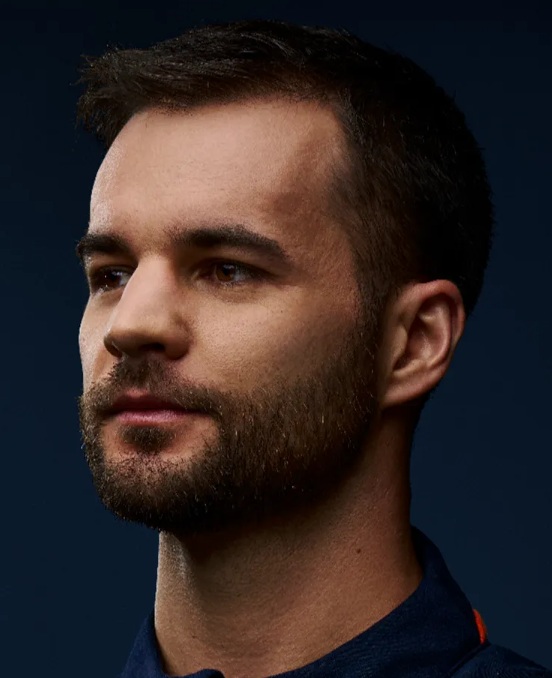
Tibor Kapu, Mission Specialist
Meet the Astronauts
Shubhanshu Shukla, Pilot
Group Captain Shubhanshu Shukla, a distinguished pilot in the Indian Air Force (IAF), has been handpicked as one of the four astronauts for the Indian Space Research Organisation’s (ISRO) historic Gaganyaan mission—the nation’s inaugural human space flight endeavor.
Born on October 10, 1985, in Lucknow, Uttar Pradesh, India, Shukla possesses fluency in both English and his native Hindi. His journey began when he was commissioned into the IAF fighter wing in June 2006. As a combat leader and seasoned test pilot, he boasts an impressive 2,000 hours of flight experience across various aircraft, including the Su-30 MKI, MiG-21, MiG-29, Jaguar, Hawk, Dornier, and An-32. His ascent to the rank of group captain in March 2024 reflects his exceptional contributions.
In 2019, Shukla received a momentous call from ISRO. He embarked on rigorous training at the Yuri Gagarin Cosmonaut Training Center in Star City, Moscow, Russia—a year-long preparation that would shape his destiny. On February 27, 2024, Indian Prime Minister Narendra Modi unveiled Shukla as one of the elite astronauts undergoing intensive training for India’s maiden human spaceflight mission, Gaganyaan, scheduled for launch in 2025.
Shukla is honored and excited as he prepares to pilot the historic Axiom Mission 4 (Ax-4) to the International Space Station (ISS), leaving an indelible mark on India’s remarkable advancements in human space exploration.
Peggy Whitson, Commander
Peggy Whitson, Ph.D., America’s most experienced astronaut, served as commander on the Axiom Mission 2 (Ax-2), the second all-private astronaut mission to the International Space Station (ISS). During her record-breaking NASA career, she flew on three long-duration space flights and accumulated 665 days in space (now 675 after the Ax-2 mission), more than any other American astronaut or woman astronaut in the world.
Whitson has over 38 years of space and science experience with NASA, as a consultant and now as director of human spaceflight for AxiomSpace. Throughout her career, she has held various positions, including NASA’s chief of the Astronaut Office, two-time commander of the ISS, chair of NASA’sAstronaut Selection Board, chief of NASA’s Operations Branch, and deputy division chief for both Medical Sciences and the Astronaut Office, as well as co-chair of the U.S.-Russian Mission Science Working Group.
During Ax-2, Whitson became the first female commander of a private space mission, adding to her accomplishment as the first female commander of the ISS, the only woman to serve as ISS commander twice, and the first woman, nonmilitary chief of NASA’s Astronaut Office.
During her three previous space missions to the ISS (Expeditions 5, 16, 50/51/52), Whitson conducted 10 spacewalks with over 60hours to her credit and performed hundreds of research experiments on board theISS. On her first long-duration ISS mission (Expedition 5), she was named the first NASA science officer conducting 21 investigations in human life sciences and microgravity sciences, as well as commercial payloads. Throughout her career, she has contributed to hundreds of experiments in biology, biotechnology, physical science, and Earth science, and welcomed several cargo spacecraft delivering tons of supplies and research experiments.
Whitson received degrees in biology and chemistry from IowaWesleyan and a doctoral degree in biochemistry from Rice University.
She grew up on a farm outside the town of Beaconsfield, Iowa, with her siblings and parents, who were farmers. She decided to become an astronaut after she watched the first moon landing on television as a child in 1969.
Whitson has been honored with numerous awards, includingNASA medals in Leadership, Outstanding Leadership, andExceptional Service; Michael Collins Trophy for Lifetime Achievement(2024); Forbes 50 over 50 (2023); TIME 100 Most Influential People in the World(2018); and Women in Aviation Lifetime Achievement Award (2017).
Sławosz Uznański-Wiśniewski, Mission Specialist
Sławosz Uznański-Wiśniewski, of Poland, is a scientist and engineer making significant contributions to the fields of science and space exploration. As a member of the European Space Agency’s (ESA) Astronaut Reserve Class of 2022, he emerged from a competitive pool of over 22,500 candidates, securing his place for future missions to the International Space Station (ISS) and beyond. Fluent in English and proficient in French, Sławosz brings a diverse linguistic background to his endeavors.
Sławosz’s educational journey began in Łódź, Poland, where he earned his M.Sc. with honors from Łódź University of Technology in 2008. His academic pursuits extended across borders, as he obtained another M.Sc. from Université de Nantes in France and a Diplôme d’Ingénieur from Polytech’Nantes in the same year. His expertise deepened further with a 2011 doctoral dissertation at the University of Aix-Marseille, focusing on radiation-tolerant designs for space applications.
Beyond academia, Sławosz made significant contributions at the European Organization for Nuclear Research (CERN) in Geneva. There, he served as a reliability expert and project lead. Notably, from 2018 to 2020, he assumed the critical role of Engineer in Charge for the Large Hadron Collider (LHC), overseeing its round-the-clock operations.
When not immersed in scientific pursuits, Sławosz seeks adventure. He tests his limits through high-altitude mountaineering expeditions, explores remote corners of the world, and enjoys sailing escapades. Whether in the lab or the great outdoors, Sławosz’s passion for exploration and discovery remains unwavering.
Sławosz joins Axiom Mission 4 (Ax-4) as mission specialist.
Tibor Kapu, Mission Specialist
Tibor Kapu, a mechanical engineer from Hungary, is a mission specialist for Axiom Mission 4 (Ax-4). Born on November 5, 1991, in Nyíregyháza, Hungary, Kapu’s journey from the classroom to the cosmos is nothing short of remarkable.
Kapu’s educational foundation was laid at Gyula Krúdy High School in Nyíregyháza. He later graduated from the Budapest University of Technology and Economics, earning a degree in mechanical engineering, followed by a master’s degree, specializing in polymer technology. His expertise extends beyond textbooks, as he contributed to the pharmaceutical and logistical industries, and worked on hybrid car battery development in the automotive industry during his career. His professional journey also took him to Belgium and the United States, where he further honed his skills in advanced technologies.
From 2022 until the start of the Hungarian Astronaut Program, Kapu has focused on space radiation protection at an aerospace technology company.
In 2023, Kapu emerged as one of four Hungarians selected from a pool of 247 candidates for the Hungarian to Orbit (HUNOR) Astronaut Program.This prestigious initiative aims to send a Hungarian astronaut to space, enabling world-class scientific experiments and tests aboard the International Space Station (ISS). Kapu’s rigorous training encompassed everything from aircraft flying to simulating the space environment, alongside mental and physical endurance tests. His studies delved into space engineering, space health, and spaceflight history, and he actively engaged in scientific experimentation.
Beyond science, Kapu embraces adventure. As an avid recreational skydiver, he has successfully completed 38 jumps, and as a runner, 21 half marathons — a testament to his fearlessness and zest for exploration.
Kapu eagerly anticipates his role in the historic Ax-4 mission to the space station, where he will contribute to Hungary’s quest for knowledge beyond our planet.